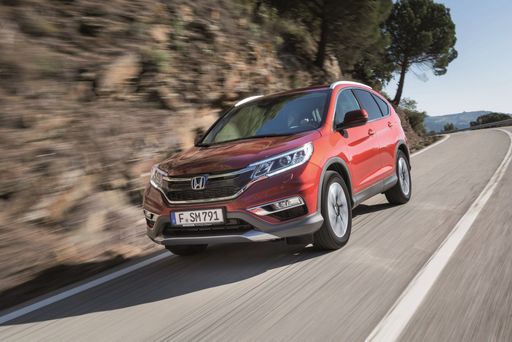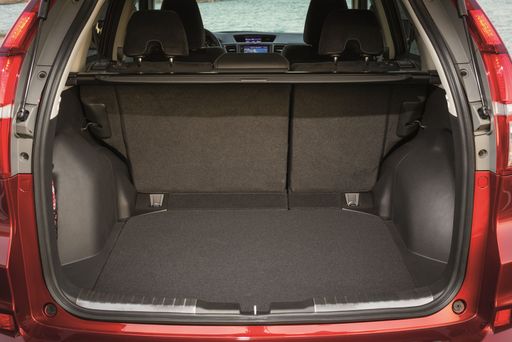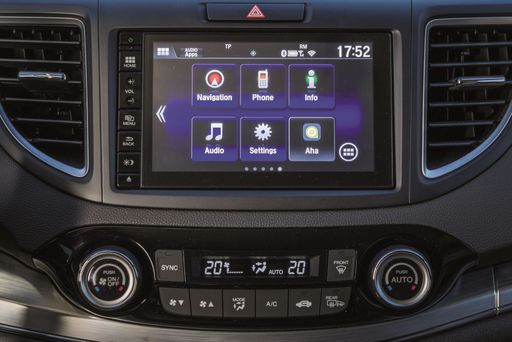Honda CR-V vs Toyota Yaris – Which car suits you better?
Compare performance, boot capacity, efficiency and price at a glance.
Find out which car is the better choice for you – Honda CR-V or Toyota Yaris?
Costs and Efficiency:
Price and efficiency are key factors when choosing a car – and this is often where the real differences emerge.
Toyota Yaris has a decisively advantage in terms of price – it starts at 21900 £, while the Honda CR-V costs 42800 £. That’s a price difference of around 20914 £.
Fuel consumption also shows a difference: Honda CR-V manages with 0.90 L and is therefore convincingly more efficient than the Toyota Yaris with 3.80 L. The difference is about 2.90 L per 100 km.
Engine and Performance:
Power, torque and acceleration say a lot about how a car feels on the road. This is where you see which model delivers more driving dynamics.
When it comes to engine power, the Toyota Yaris has a distinct edge – offering 280 HP compared to 184 HP. That’s roughly 96 HP more horsepower.
In acceleration from 0 to 100 km/h, the Toyota Yaris is clearly quicker – completing the sprint in 5.50 s, while the Honda CR-V takes 9 s. That’s about 3.50 s faster.
In terms of top speed, the Toyota Yaris performs a bit better – reaching 230 km/h, while the Honda CR-V tops out at 195 km/h. The difference is around 35 km/h.
There’s also a difference in torque: Toyota Yaris pulls slightly stronger with 390 Nm compared to 335 Nm. That’s about 55 Nm difference.
Space and Everyday Use:
Beyond pure performance, interior space and usability matter most in daily life. This is where you see which car is more practical and versatile.
Both vehicles offer seating for 5 people.
In curb weight, Toyota Yaris is significantly lighter – 1090 kg compared to 1821 kg. The difference is around 731 kg.
In terms of boot space, the Honda CR-V offers convincingly more room – 617 L compared to 286 L. That’s a difference of about 331 L.
In maximum load capacity, the Honda CR-V performs convincingly better – up to 1710 L, which is about 775 L more than the Toyota Yaris.
When it comes to payload, Toyota Yaris slight takes the win – 525 kg compared to 475 kg. That’s a difference of about 50 kg.
Who wins the race?
The Honda CR-V proves to be outperforms in nearly all aspects and therefore becomes our DriveDuel Champion!
Honda CR-V is the better all-rounder in this comparison.
 @ Honda Motor Co., Ltd.
@ Honda Motor Co., Ltd.
Honda CR-V
Honda CR-V
The Honda CR-V blends sensible practicality with a polished feel, offering roomy interiors and a confident ride that keeps commutes and weekend escapes equally comfortable. Its unshowy styling and reliable reputation make it a smart, low‑drama choice for buyers who want versatility without fuss — the kind of car that quietly makes everyday life a little easier.
details @ Honda Motor Co., Ltd.
@ Honda Motor Co., Ltd.
 @ Honda Motor Co., Ltd.
@ Honda Motor Co., Ltd.
 @ Honda Motor Co., Ltd.
@ Honda Motor Co., Ltd.
 @ Honda Motor Co., Ltd.
@ Honda Motor Co., Ltd.
Toyota Yaris
The Toyota Yaris is a sprightly city hatch that packs clever packaging, surprising comfort and fuel-sipping manners into a neat, easy-to-park package. It rewards sensible buyers with low running costs, friendly ergonomics and a forgiving drive, delivered with Japanese reliability and just enough personality to make errands feel a little less ordinary.
details @ Toyota Motor Corporation
@ Toyota Motor Corporation
 @ Toyota Motor Corporation
@ Toyota Motor Corporation
 @ Honda Motor Co., Ltd.
@ Honda Motor Co., Ltd.
|
 @ Toyota Motor Corporation
@ Toyota Motor Corporation
|
|
|
|
Costs and Consumption |
|
|---|---|
|
Price
42800 - 52100 £
|
Price
21900 - 46700 £
|
|
Consumption L/100km
0.9 - 6.7 L
|
Consumption L/100km
3.8 - 9.5 L
|
|
Consumption kWh/100km
-
|
Consumption kWh/100km
-
|
|
Electric Range
79 km
|
Electric Range
-
|
|
Battery Capacity
-
|
Battery Capacity
-
|
|
co2
19 - 152 g/km
|
co2
87 - 215 g/km
|
|
Fuel tank capacity
46 - 57 L
|
Fuel tank capacity
36 - 50 L
|
Dimensions and Body |
|
|---|---|
|
Body Type
SUV
|
Body Type
Hatchback
|
|
Seats
5
|
Seats
4 - 5
|
|
Doors
5
|
Doors
3 - 5
|
|
Curb weight
1821 - 1988 kg
|
Curb weight
1090 - 1356 kg
|
|
Trunk capacity
579 - 617 L
|
Trunk capacity
141 - 286 L
|
|
Length
4706 mm
|
Length
3940 - 3995 mm
|
|
Width
1866 mm
|
Width
1745 - 1805 mm
|
|
Height
1673 - 1684 mm
|
Height
1455 - 1500 mm
|
|
Max trunk capacity
1634 - 1710 L
|
Max trunk capacity
935 L
|
|
Payload
439 - 475 kg
|
Payload
289 - 525 kg
|
Engine and Performance |
|
|---|---|
|
Engine Type
Plugin Hybrid, Full Hybrid
|
Engine Type
Full Hybrid, Petrol
|
|
Transmission
Automatic
|
Transmission
Automatic, Manuel
|
|
Transmission Detail
CVT
|
Transmission Detail
CVT, Manual Gearbox, Automatic Gearbox
|
|
Drive Type
Front-Wheel Drive, All-Wheel Drive
|
Drive Type
Front-Wheel Drive, All-Wheel Drive
|
|
Power HP
184 HP
|
Power HP
116 - 280 HP
|
|
Acceleration 0-100km/h
9 - 9.5 s
|
Acceleration 0-100km/h
5.5 - 9.7 s
|
|
Max Speed
187 - 195 km/h
|
Max Speed
175 - 230 km/h
|
|
Torque
335 Nm
|
Torque
390 Nm
|
|
Number of Cylinders
4
|
Number of Cylinders
3
|
|
Power kW
135 kW
|
Power kW
85 - 206 kW
|
|
Engine capacity
1993 cm3
|
Engine capacity
1490 - 1618 cm3
|
General |
|
|---|---|
|
Model Year
2024 - 2025
|
Model Year
2024 - 2025
|
|
CO2 Efficiency Class
B, D, E
|
CO2 Efficiency Class
B, G
|
|
Brand
Honda
|
Brand
Toyota
|
What drivetrain options does the Honda CR-V have?
The Honda CR-V is available as Front-Wheel Drive or All-Wheel Drive.
The prices and data displayed are estimates based on German list prices and may vary by country. This information is not legally binding.
